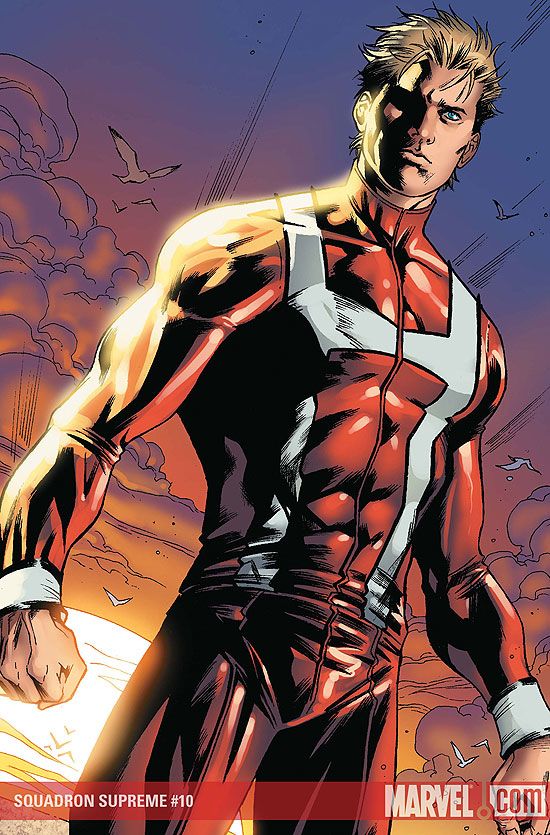When I last reviewed this series, I found it slow-moving and poorly illustrated. It's safe to say that neither of these statements are true as of issue #10 since the pace has accelerated rapidly -- after six ponderous issues, things have started to happen with explosive results -- and a new Marco (Checchetto to replace the artist of the opening arc, Turini) has come on board to make this comic look slickly rendered at least.
But this is still a problematic series.
Sure, it looks pretty good now, with Checchetto's work looking a bit like Bryan Hitch on page A, and bit like Trevor Hairsine on page B, but with less consistency than either of them. And now that Howard Chaykin has finished introducing his Marvel analogues, he can get down to the business of telling stories.
Yet for every interesting turn this comic takes, it seems to limp around an uninspired corner. Take the overall premise of this second story arc: it's basically the DC analogues (the Gruenwald-by-way-of-Straczynski Squadron Supreme) vs. their Marvel counterparts (the as-introduced-by-Chaykin girl with the spider powers, the man with the metal suit, the patriot wrapped in the flag, the four fantastic astronauts), with the DC analogues as the arrogant, detached "villains" and the Marvel analogues as the emotionally-conflicted heroes. It may work as a commentary on the mainstream superhero in American comics, but it's a thin commentary at best. And Chaykin doesn't seem particularly interested in exploring the metafictional aspects beyond the superficial character concepts.
As a story-in-an-of-itself, it doesn't work particularly well, either. Presented as a series of too-brief scenes (almost snapshots) of the destroyed White House, the new Helicarrier under attack, and Emil Burbank's machinations, the comic has all the emotional depth of the similarly apocalyptic "Ultimatum" all of a sudden. The first story arc in this "Squadron Supreme" series was all slow-burn and mysterious introductions, but it then immediately jumped to highlight reel spectacle in this arc. It's missing the connective tissue that would make the reader care.
This is far from Howard Chaykin's best work, and it's not even comparable to the batch of Elseworlds stories he wrote in the 1990s (although it treads similar ground with its slightly-off-kilter reimagining of classic archetypes). With Chaykin's history as an iconoclast and Checchetto's slickly capable storytelling, "Squadron Supreme" has a chance to be something interesting, but it just isn't. Not yet.

